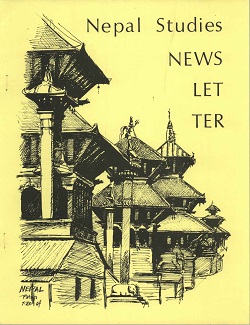Author Biography
Emmi Okada is completing her doctoral thesis on nonviolence and peacebuilding in the Mahayana Buddhist tradition at the University of Tokyo. She holds a Master’s degree in Development Studies from the University of Oxford and another Master’s in Religious Studies from the University of Tokyo. She has taught courses on religion, peace and conflict at Tama University’s School of Global Studies.
Abstract
This paper aims to investigate the construction of secularity in the Tibetan exile society by examining the English-language discourse on the unfolding process of secularization, as well as the emergence of an ideology of secularism and secular democracy. I consider secularization in the exile polity to be occurring in two respects. The first is in the form of differentiation between the political and religious institutions, which culminated in the Dalai Lama’s complete devolution of his political powers to the elected government in 2011. The second is in the sense of the transfer and transition of political legitimacy from the Dalai Lama, who holds traditional-charismatic authority, to the elected leadership in exile, particularly the current lay prime minister whose political authority lies more in democratic and legal-rational legitimacy. Secularism is understood here as a political-philosophical ideology to be distinguished from the socio-political process of secularization. In the exile context, the term ‘secularism’ is translated as chö luk rimé (chos lugs ris med)—a neologism whose key lexical constituent rimé alludes to a much older Tibetan tradition of ‘non-sectarianism.’ Analyzing the discourse on key events which occurred in exile in 2011 (the Dalai Lama’s political retirement and the election of a lay prime minister), this paper claims that a unique Tibetan secularism that upholds religious pluralism is under construction in order to negotiate the exigencies of political modernity, the preservation of Tibetan identity and unity, and the struggle against China. While the two elected exile prime ministers to date have both invoked traditional as well as legal-rational and democratic authority to appeal to their Tibetan constituents and international supporters, this article concludes that there is a definite shift towards secular democracy, where the basis of political legitimacy is transitioning from the sovereignty of the Dalai Lama as a Bodhisattva-King to one grounded in popular sovereignty.
Acknowledgements
The author would like to thank the innumerable Tibetans in Dharamsala, India, without whose assistance the present research could not have been completed. She also wishes to acknowledge Professor David Gellner who supervised her MPhil thesis which formed the basis of this article, and the Tibetan Studies staff at the Oriental Institute at the University of Oxford, Tsering Gonkatsang and Dr. Ulrike Roesler, for their invaluable guidance during her MPhil research.
Creative Commons License

This work is licensed under a Creative Commons Attribution 4.0 License.
Recommended Citation
Okada, Emmi. 2016. Constructing the Secular: The Changing Relationship Between Religion and Politics in the Tibetan Exile Community. HIMALAYA 36(1).
Available at:
https://digitalcommons.macalester.edu/himalaya/vol36/iss1/12


